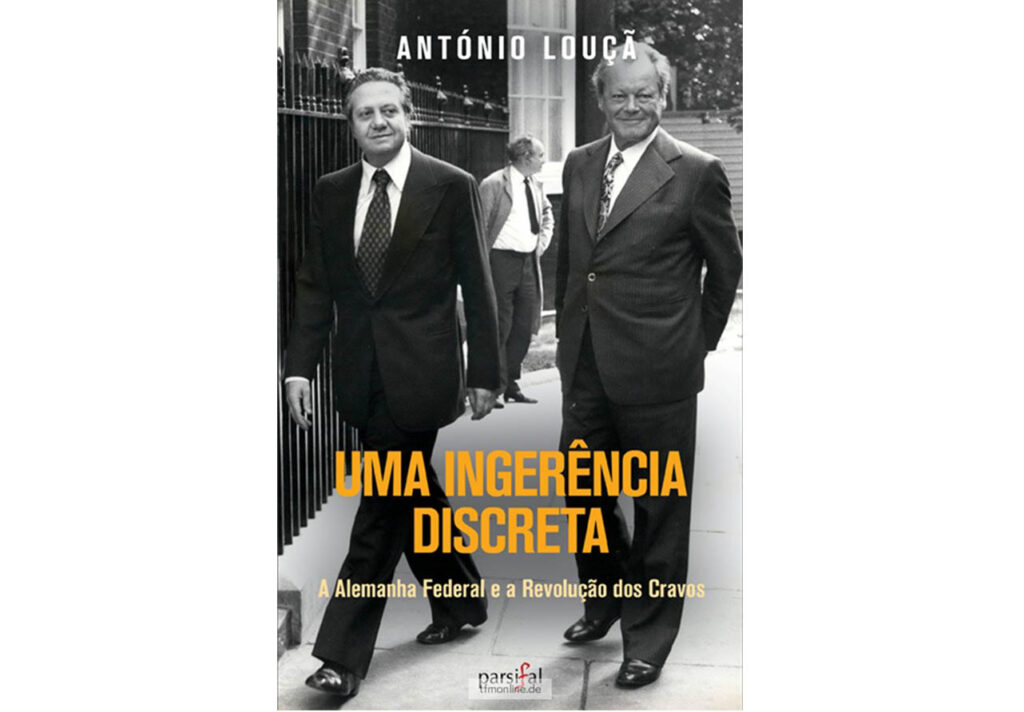An investigation by journalist António Louçã, published in a book, highlights the “decisive role [of the former Federal Germany] in the process of controlling and dominating the Revolution” of April 25, 1974, given the leading role of the United States.
“A discreet interference. Federal Germany and the Carnation Revolution” is the title of the book “of a journalistic nature”, as António Louçã writes, in which he addresses the “intervention of Federal Germany aiming to put an end to the revolutionary process that, from Portugal, threatens to reignite in Europe the fire of French May [of 1968]”.
The work will be presented next Friday, at 18:30 pm, at the Camões Municipal Library, in Lisbon, by researcher Mário Matos, from the University of Minho.
“The role that Federal Germany played in the concert of powers committed to subduing the Portuguese revolution continues to be largely underestimated, in favor of an image of absolute protagonism for the United States”, states the journalist, who with this investigation intends to “blaze the trail to a more systematic historical investigation.”
The former Federal Germany (RFA) “was the European country that most actively supported the Salazar dictatorship. And it was also the European country from which the anti-Salazarist opposition received the most substantial support.”
António Louçã mentions that in the context of the “Cold War” policy, “it is not surprising” that Bona “rushed to establish the best relations with the surviving fascist dictatorships in Europe”, Spain and Portugal.
The author adds that “the political personnel of the FRG were largely made up of recycled Nazis and could only welcome the rapprochement with the surviving relatives of the Third Reich”.
Franz-Josef Strauss, who was Minister of Defense from 1956 to 1062, having visited Portugal in December 1960, and decorated Portuguese soldiers, “hidden” from his cabinet colleagues aspects relating to the Beja air base agreement and the supply of weapons intended to the colonial war. This attitude of the German ruler is justified as a “secret precaution in the face of public opinion”.
The socialist leader Mário Soares (1924-2017) was, “for long years”, ignored by Willy Brandt, then Minister of Foreign Affairs, between 1966 and 1969, who “at the same time fraternized with his counterpart Franco Nogueira, one of the exponents most extremists of the Portuguese dictatorship”.
“When he wanted something from Bona, Soares would climb the service stairs and be approached through the back door”, and his deportation to S. Tomé and Príncipe, “only with irons could he extract a timid anti-fascist protest from the SPD”.
Willy Brandt (1913-1992) was chancellor of the RFA when the 25th of April took place, and “refrained from immediately choosing clearly between the PS and the PPD”, he feared that Soares would embark on “a populist front policy”, allying himself with to the PCP.
In the so-called years of the “democratic transition”, “German financial support for Iberian parties, to prevent a supposed drift towards socialism, was delivered in bundles of notes and sometimes without a receipt”, but a doubt remains, whether “part of it returned of this money into the hands of the German parties”.
If part of the money went to the German parties that devised this scheme, if so, “the Iberian parties would have worked as a laundry, recycling part of the support from the German-federal State to finance the federal German parties”.
“Less popular with murals and 'graffiti' than North American interference, Federal Germany was quicker to find the tone that suited it. More discreet, it was no less effective. As well as [the American Frank] Carlucci [ambassador in Lisbon between 1975 and 1978], were [Fritz] Caspari [who took office as attaché at the German embassy in Lisbon in 1975], [Willy] Brandt and [Helmut] Schmidt [German Chancellor from 1974 to 1982] the fathers of the Novembrist outcome” of 1975, concludes the author.


















Comments